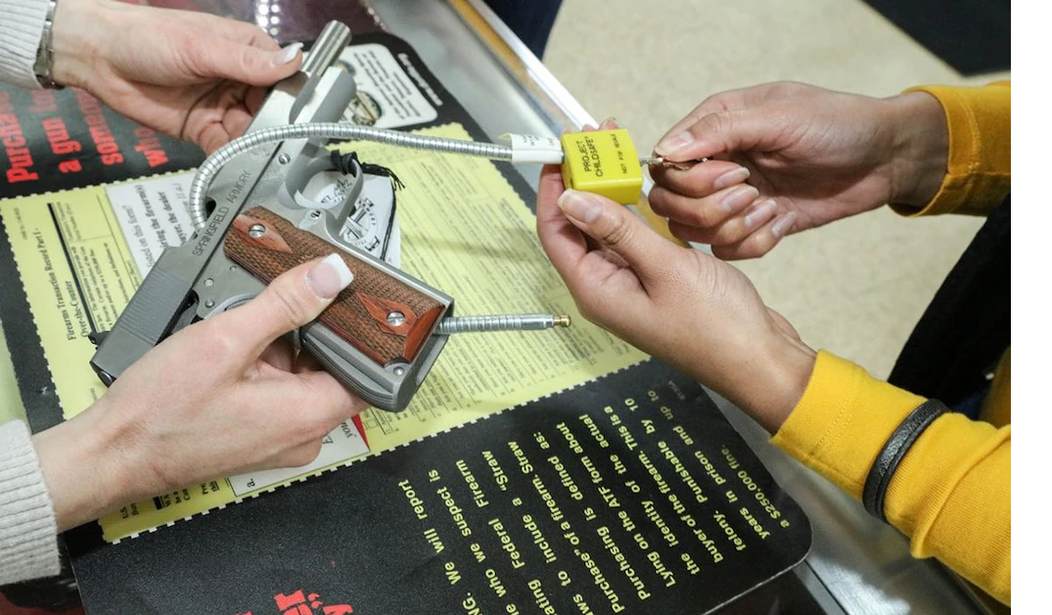A recent research letter concerning suicide by firearm highlights something that most gun owners already know. The short form of what was reported is that gun owners are not going to tell health care providers that they own firearms. Okay, that’s at least the conjecture that the authors of the paper were not willing outright say. The study involved looking at death due to suicide Between January 1, 2016, and December 31, 2019 in Washington State. The paper, Patient-Reported Firearm Access Prior to Suicide Death, does put a good deal of effort in extracting information from the Washington State death records and electronic health record data they had available. Some of this data was not considered “sensitive” enough to require consent from patients.
The Kaiser Permanente institutional review board approved this study and waived the need for patient informed consent, because use of this protected health information involved no more than a minimal risk to the privacy of individuals. This study followed the reporting guideline for case series.
What did their study uncover? A good deal of statistics that seem to be consistent regardless of who’s doing the study and for the most part where. With males (86%) and whites (85%) ranking in the highest numbers of persons to die by suicide. The other statistic which brings this topic to the pages of Bearing Arms, and will continue to, 48% of completed suicides were done via firearm, and 52% via all “other means”.
In a recent conversation I had with Cam, he noted that he’s more interested in putting an end to all suicides, regardless of methods. I tend to agree with Cam on the overall goal, however I understand that this emphasis on “the gun” has to do with the lethality of potential methods. Depending on which study one is looking at, approximately 85-95% of suicide attempts with a firearm result in death. “Other” means that might be attempted result in death approximately 20% of instances. Further, the majority of people that survive a death by suicide attempt don’t go on to try again.
My big question’s always a quality of life question. Why do so many people want to end their lives in the United States? What about our society, pressures, needs, etc. cause so many people to want to end their lives? If 2/3rds of the approximate 40K deaths due to firearms are suicides, it should pull into sharp focus that in this country an individual is more than likely to use a firearm on themselves 66% of the time over another individual. All the “gun crime” reporting tends to ignore this fact.
Where does this leave us with the study? Some of their conclusions paint a picture that I don’t suspect to change anytime soon. The data the study pulled from utilized a questionnaire that asked patients if they were firearm owners or not.
Our findings have important implications for health care systems that are considering firearm access screening to support suicide prevention. First, this study underscored the potential reach of standardized firearm access questions in primary care clinics, which implemented routine use of this question during the study and where the highest proportion of firearm suicide decedents were seen prior to death. Second, the decision to only ask primary care patients with a MH or SUD diagnosis about firearm access likely resulted in missed opportunities, as many firearm suicide decedents did not have these diagnoses.
It’s those “missed opportunities” that’re going to lose many of the firearm owners. The amount of work that needs to be done for the medical field to be trusted by gun owners is beyond monumental. With so many positions and stances being made over the years from the “medical industry” embracing an abstinence only approach to firearms, why on Earth would anyone want their primary care physicians asking about this sensitive topic? We can’t have medical doctors pushing for red flag laws, asking people to volunteer information about owning guns, telling them they need to keep their guns separate from the ammo and unloaded, and have many of them speak down to us gun owners as if we’re subhuman, then expect us to trust them.
The study does tap dance a little around this topic in a more or less eloquent way.
This study also highlighted the need to improve how health care systems ask standardized questions. Most patients who died by firearm suicide answered the firearm access question when they received it, confirming our prior finding that patients will answer this standardized firearm access question.5 However, more than half of those who answered the question and who subsequently died by firearm suicide reported no firearm access. A study limitation is that we cannot determine whether these individuals acquired access after answering the question or answered no despite having access. Nevertheless, prior qualitative findings suggest that transparency about how firearm access information will be used and building clinician competency and clinician–patient trust may encourage honest reporting, open dialogue, and improved patient-centeredness of this practice.6 Assessing patients’ plans to acquire firearms may also be useful. Future work is needed to test language and strategies designed to encourage patient-reported firearm access.
I think we’d all be kidding ourselves if we actually thought that firearm owners responded truthfully to this question. With more than half saying they had no firearm access. Okay, definitively we can’t say that any of them lied, but we can guess at it in our heads.
The final sentence does more than punctuate that paragraph, it punctuates the issue at large on this subject. More than language testing and strategies need to be designed. The most authentic language we can get from the medical community would be akin to “We screwed up big time with how we’ve acted for decades. We really only want to help. Can you give us another chance?” And then after a suitable time of good behavior I can see gun owners becoming more trusting of the medical industry on the gun subject. Let’s remember the CDC has on more than one occasion dabbled in and around restricting gun ownership. What does need to change?
The way it stands now, I personally adopt a mentality put forth by one of the members of Doctors For Responsible Gun Ownership, Dr. John Edeen. If a doctor that I’m not actually going to go shooting with or isn’t asking me a question about firearms because they’re interested in them, Dr. John’s way of thinking is agreeable to me and how I might handle the situation. With the way medical records are handled today?
There’s several things that you can do. First of all just you can just refuse to answer or just lie. It’s not his…it’s not his business. That’s right it’s a none of your business. It’s is really a lot of these people have been brainwashed by establishment medicine to think that they’re actually helping. Um and they’re not. You know? I mean the American Academy of Pediatrics you know, tells you to store your gun separately from your ammunition. Well that works really good for, you know preventing accidental childhood you know gun [accidents] but it doesn’t do much when somebody’s breaking in your house. And so it goes to one of the things to say…basically you can ask the doctor “So does your insurance company know that you’re practicing outside of your scope of medicine?” You ask them “What organization are you certified by uh to give this kind of advice?” and then also “If I’m harmed by following your advice, are you going to be covered by malpractice insurance?” And that usually gets their attention…that’ll usually get their attention and that, and that’s perfectly you know, a legitimate thing to do. Yeah. Also you know if…if you know pretty much make it clear to the doctor that that they’re out of bounds and they continue to press you can say “Doctor this is a boundary violation. You understand what that is doctor? Because I’m going to report you to the state medical board and you’re going to have to defend this, and you could lose your license to practice medicine or get sanctioned by the state.”
Do I believe the medical industry has a role to play in dealing with this topic? Sure. But not until they’ve regained the respect of gun owners. This is not just about phrasing questions the right way and “strategies designed to encourage” people to volunteer their personal information. Do I think there are physicians that are working towards trying to break these barriers and re-write the book when it comes to this subject? You bet ya. Doctors like Dr. John that are willing to stand up and say the things that he says are good starts to rekindling the relationship.
More physicians need to stand up and put health before politics. If they’re saying they’re here to help, then they need to prove that there are no strings attached.
I reached out to another such physician, Dr. Emmy Betz, one of the doctors who worked on this paper. Betz has a solid track record of not offering up legislative solutions to any of the firearm related subjects we might encounter in the United States. Betz is more known for coming up with solutions that make people want to be more responsible by offering up programs such as the creation of the Colorado Gun Storage Options Map. Betz had a message for me to share concerning the relationships between doctors, their patients, and firearms.
Doctors and other health professionals are trained to discuss a range of sensitive topics with patients, all towards a goal of promoting health and preventing injury or illness. These topics include things like sexual practices, alcohol or drug use, seatbelt use, and exercise and weight loss. Until recently, though, many of us didn’t get specific training in how to talk about firearms in a way that is respectful, non-judgmental, and likely to help firearm owners prevent unintended harm. I’m glad there are more resources and programs available now, but there’s more work to do. It’s also important that these messages – around preventing suicide and other injuries – come from other trusted, non-medical groups.
Betz’s leadership and roles on this topic needs to be emulated throughout the medical industry. With Drs. and physicians like her, the members of groups like Doctors For Responsible Gun Ownership and the Walk The Talk America, a strained relationship between medicine and firearms can be repaired.








Join the conversation as a VIP Member